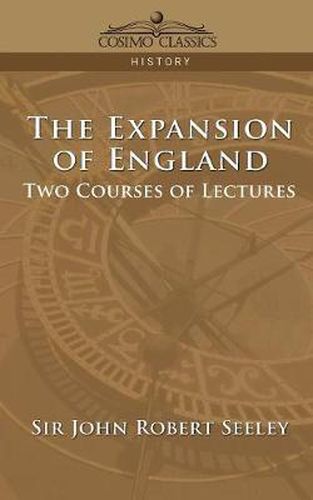Readings Newsletter
Become a Readings Member to make your shopping experience even easier.
Sign in or sign up for free!
You’re not far away from qualifying for FREE standard shipping within Australia
You’ve qualified for FREE standard shipping within Australia
The cart is loading…






This title is printed to order. This book may have been self-published. If so, we cannot guarantee the quality of the content. In the main most books will have gone through the editing process however some may not. We therefore suggest that you be aware of this before ordering this book. If in doubt check either the author or publisher’s details as we are unable to accept any returns unless they are faulty. Please contact us if you have any questions.
[T]he history of England ought to end with something that might be called a moral. Some large conclusion ought to arise out of it; it ought to exhibit the general tendency of English affairs in such a way as to set us thinking about the future and divining the destiny, which is reserved for us. -J.R. Seeley, from Lecture 1: Tendency in English History From this optimistic and enthusiastic starting point, the prominent historian and classical scholar launches into a fervent elevation of Britain’s imperial enterprise. The empire was flourishing when he came to its defense in this, his most successful work, first published in 1883, but Seeley worried about the peculiar inattentiveness on the part of the empire’s masters: We seem to have conquered and peopled half the world in a fit of absence of mind, Seeley frets here. With this nod of approval to what he believed was an English destiny to civilize the world, this work became a standard text for the new wave of liberal imperialists in 1880s Britain. Today, it is an illuminating look at a world power so enthralled to its own hubris that it could not see downfall looming. SIR JOHN ROBERT SEELEY (1834-1895) was Regius Professor of Modern History at Cambridge, a fellow of the Royal Historical Society, and an honorary member of Historical Society of Massachusetts. He is also the author of Ecce Homo.
$9.00 standard shipping within Australia
FREE standard shipping within Australia for orders over $100.00
Express & International shipping calculated at checkout
This title is printed to order. This book may have been self-published. If so, we cannot guarantee the quality of the content. In the main most books will have gone through the editing process however some may not. We therefore suggest that you be aware of this before ordering this book. If in doubt check either the author or publisher’s details as we are unable to accept any returns unless they are faulty. Please contact us if you have any questions.
[T]he history of England ought to end with something that might be called a moral. Some large conclusion ought to arise out of it; it ought to exhibit the general tendency of English affairs in such a way as to set us thinking about the future and divining the destiny, which is reserved for us. -J.R. Seeley, from Lecture 1: Tendency in English History From this optimistic and enthusiastic starting point, the prominent historian and classical scholar launches into a fervent elevation of Britain’s imperial enterprise. The empire was flourishing when he came to its defense in this, his most successful work, first published in 1883, but Seeley worried about the peculiar inattentiveness on the part of the empire’s masters: We seem to have conquered and peopled half the world in a fit of absence of mind, Seeley frets here. With this nod of approval to what he believed was an English destiny to civilize the world, this work became a standard text for the new wave of liberal imperialists in 1880s Britain. Today, it is an illuminating look at a world power so enthralled to its own hubris that it could not see downfall looming. SIR JOHN ROBERT SEELEY (1834-1895) was Regius Professor of Modern History at Cambridge, a fellow of the Royal Historical Society, and an honorary member of Historical Society of Massachusetts. He is also the author of Ecce Homo.